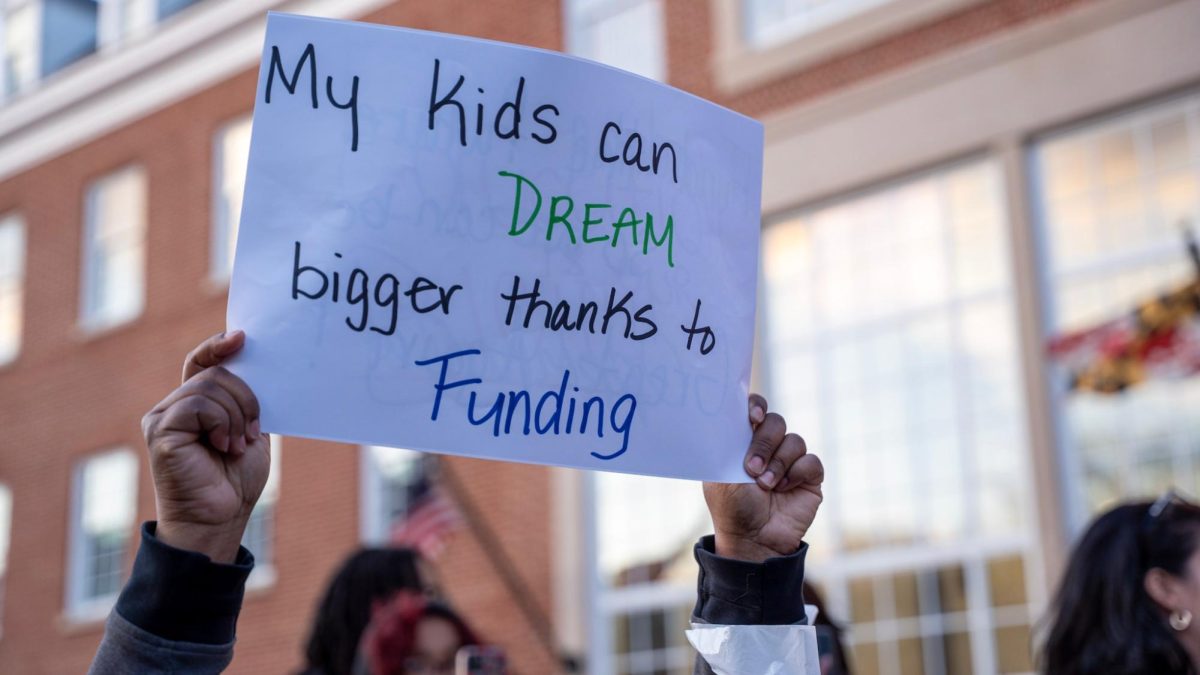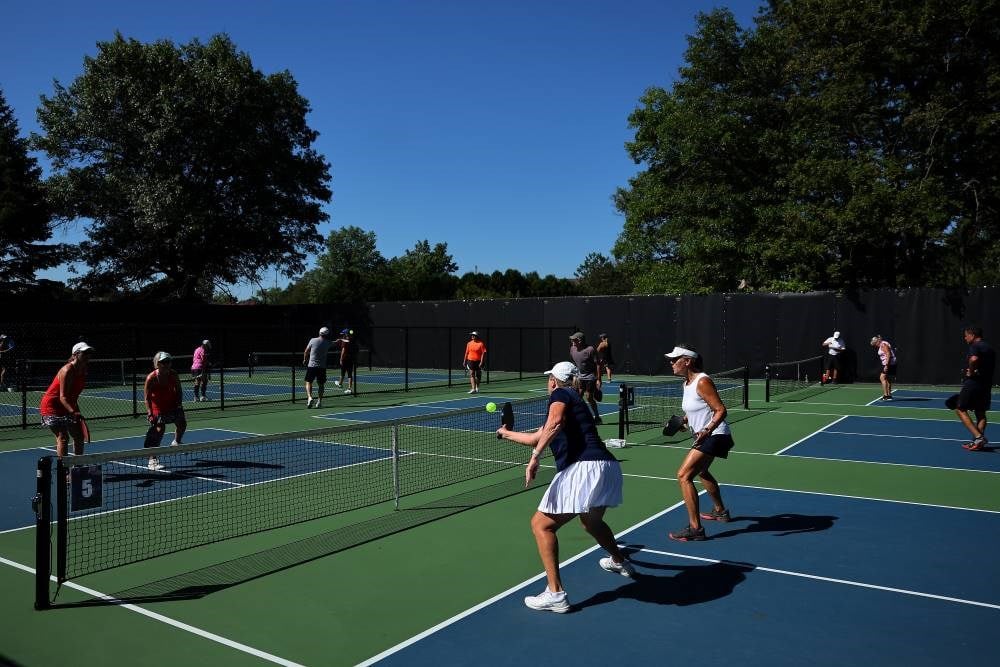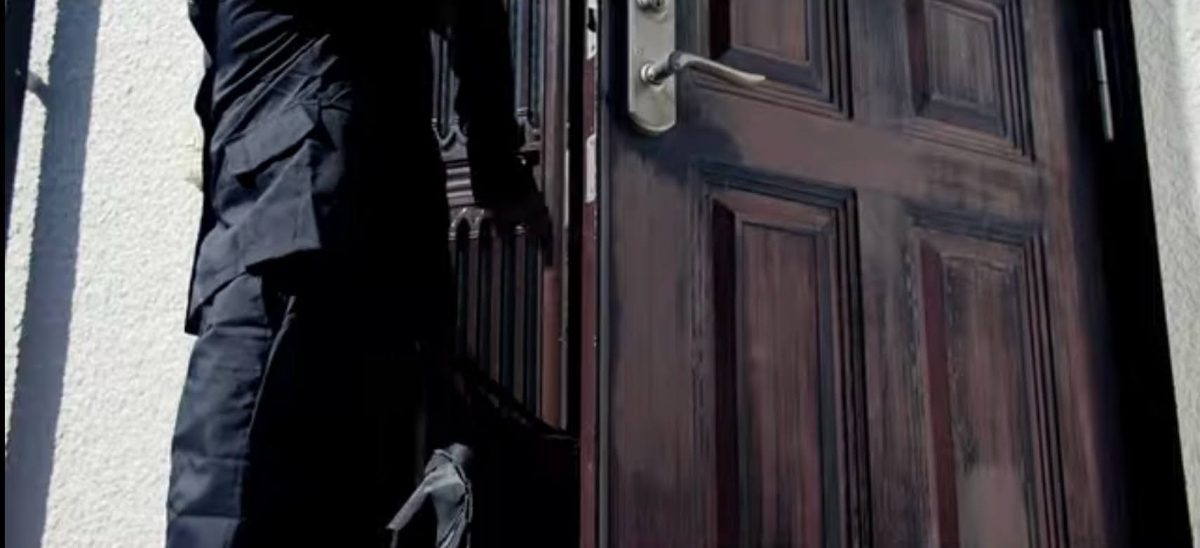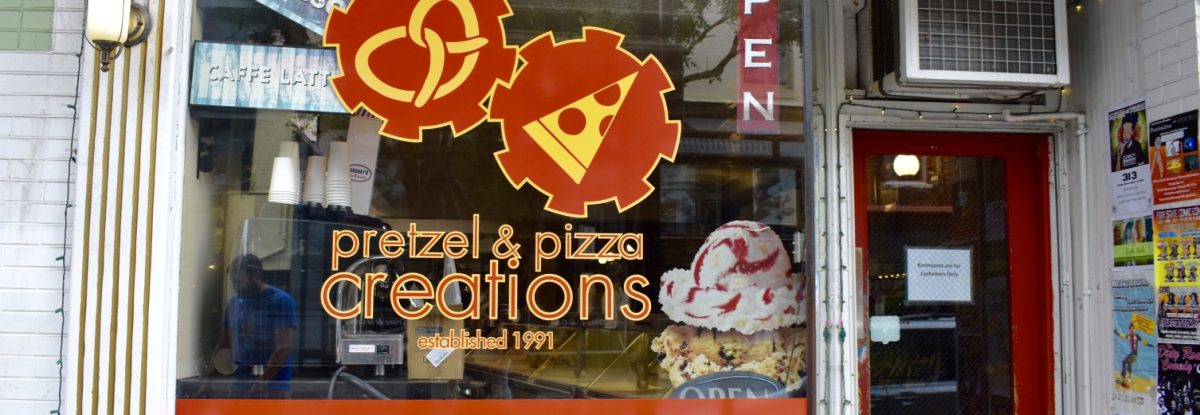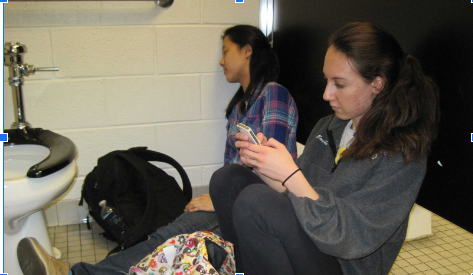Punishments and policies are absolutely essential for a school to function properly. Ever since the pandemic, students and staff around the country have expressed their frustration with their schools punishments and policies. Tuscarora High School, a well known school in Frederick County, Maryland, has over 1,000 students, with a student-teacher ratio of 19 to 1. Students and staff within Tuscarora High School have made their opinion clear: The punishments within the school are ineffective and unjust. As long as this belief is held, Tuscarora High School will continue to face issues of bad behavior and unhappy students and staff.
Since 2020, misbehavior in school has increased significantly. According to Globe Newswire, school staff from 41 public school districts across the country revealed that they perceived an alarming increase in behavioral problems. Additionally, according to Pew Research Center, a majority (68%) of teachers revealed that they experienced verbal abuse from students. According to the School Pulse Panel and the National Center for Education Statistics, staff and administration feel that student misbehavior has become increasingly harder to control, due to the lack of effective punishments within the school.
Professor of educational leadership at the University of North Carolina Thurston Domina stated that behavior has “become more acute in the last few years.” Domina continued, stating that “these data suggest two things: First, that schools are facing substantial behavioral challenges, and second, that they don’t feel confident about the strategies they have to address them.” If schools do not feel confident in their strategies to control misbehavior, then these strategies will continue to remain ineffective and misbehavior will persist.
Another complaint in schools has been that punishment and policies are unjust. USA Today explains that “because categories like defiance and disorderly conduct are often defined broadly at the state level, teachers and administrators have wide latitude in interpreting them. That opens the door to suspensions for low-level infractions.” The wrong actions in schools are being punished, whereas the actual major issues are not being addressed – schools do a poor job of defining what defiance is, and therefore rules are poorly established and students are punished for minor infractions.
Students across Tuscarora High School not only see the injustices when it comes to these punishments, but they experience them as well. One regulation that has been added to the 2024-2025 school year would be SmartPass. This is used to regulate the hallways and restroom usage. When asked about the new school-wide SmartPass system, junior Nitya Rishi had a few things to say, “There are some students that are obviously good students and use the bathrooms correctly, and there’s other students that just wander the halls. The students that actually need to go end up 25th in line because of the people abusing it.” This goes to show that these regulations are not going to be effective if they are not enforced. The students need to use these resources correctly, but it is also the Tuscarora staff member’s responsibility to monitor its usage.
In addition, junior Manthan Unadkat also believes that SmartPass has not helped when it comes to hallway roaming and people skipping class. He states, “…whenever I go out or am going to lunch and back, I always see people roaming around regardless of the SmartPass changes.” He also goes on to say that even with SmartPass, there are still many people crowding the bathrooms and skipping with no punishments. Clearly, SmartPass does not decrease the problems of hallway roaming, individuals skipping class or bathrooms being crowded, instead it just creates an inconvenience for those actually needing to use the restroom.
Corroborating the student’s opinions, there were multiple instances observed of students who were skipping class, from leisurely roaming the halls during class time to simply relaxing in the bathrooms. Occasionally, an admin would be seen talking and joking with those who were skipping as if no consequence would be dealt. SmartPass was a system enforced this school year to regulate the activity that occurs throughout the school in order to minimize time spent outside of class; however, the same pattern of certain students avoiding class is still occurring without any efficient method in targeting the actual issue.
In addition, SmartPass, which was initially supposed to directly affect those who were being disobedient, has inconvenienced the entire school with its wait times. For the first and last 10 minutes of class, the bathrooms are locked by administrators, and SmartPass closes the window for all passes in accordance with it. This forces an increasingly long line for the bathroom during the five minute passing period between classes. Students often have to decide between sacrificing being late for class in order to use the bathroom or waiting an additional 10 minutes until they’re permitted to use the bathroom again. Instead of this punishment preventing certain students from unnecessarily staying in the bathrooms, it disrupts all students who are in need of its actual purpose.
When it comes to teacher opinions on SmartPass, math teacher Christopher Babb states, “I would say 80% of the time, it is annoying, especially if I’m not doing something on my computer or I’m on a different screen. It can be very annoying especially when it is during instruction.” He goes on to explain that it has not proved to be more or less convenient than last year’s system since physically writing a pass took just as much time. However, Babb feels that compared to past years, there have been improvements when it comes to punishments for hallway roaming which has decreased it overall. Although, the system is not perfect, and there are still numerous improvements to be made.
However, it is not just the students who believe punishments at THS are unequal. Orchestra Director, Lucas Hogan agrees that new policies are not enforced on every student the same. “I think there should be less exceptions to the rules. I feel like there’s a set standard of rules of the policies laid out, [and people make excuses such as], ‘Well I feel bad for the kid because of x y or z circumstances’ [and] this ultimately leads to some students not receiving the punishment that the policy states, while others will.” Additionally, Hogan mentioned how he believes that these new policies are not the reason for the increase in misbehavior at THS. For instance, he stated he has two students who are routinely late to his first block class, however, the late lines at the front of the school are not at fault for their tardiness. So, Hogan agrees with the new policies attaining to late students, and if anything, they display how severe of a fix is needed to prevent late students.
Similarly, math teacher Christopher Babb believes that the rules that have been made this year have not been enforced, therefore not decreasing any problems that have been said are going to be fixed. Babb finds that phone rules have not been enforced at all this year causing phone usage to remain the same from last year, and students to still not be as focused as they could be. He also finds that the amount of people coming in late in the mornings has remained the same from last year. This emphasizes that despite the admin stating that phone rules are going to be more strict, they have not been enforcing these rules at all which has ultimately led to no change in phone use in our school.
Furthermore, a student (who wishes to remain anonymous) had been late to school a few times and ended up in detention. I (Aymen Saifullah) asked them, “What were the types of students you saw in the detention room, and how were those students behaving and interacting within the detention?” The student responded, “The types of students that were in there were those who did not seem to care about their education and were constantly causing disturbances both in the hallways and in the classrooms. I believe I am a pretty good student, and based on the people that were in there, I did not feel that I belonged there or deserved to be there just because I was late.” They continue answering the second part of the question, “The other students in the detention room were chatting freely with the teachers responsible for supervising the room. They were being loud, cursing, and speaking poorly about students who were not in the room, and this behavior was being entertained by the teachers. While one of the staff members did try to encourage the students to complete any missing work they had, none of the students actually did anything productive. They were even trying to bring other students (friends) with them who did not have passes to be in the detention room.”
Moreover, I (Aymen Saifullah) am very rarely late to school, and the one time I was, I distinctly heard a few of the admins discussing, “Oh, we have some new faces today,” after I didn’t know how to create a smart pass to my class because I am never late. The administrators know that only 40-50 kids are late to school, and it is always the same people. They shut the door in your face and make you walk around the school if you are even a few seconds late. It is the most cruel and unusual punishment. I would consider myself a rule-abiding student, so to be treated so badly, with a door slamming in your face, is really not the best way to start a school day. On top of that, you get blamed for it, as an admin has stated, “It is your fault if you are late to school, it is not our problem,” when there could be a plethora of reasons on why a student may be late.
The key solution to making punishments effective is through reinforcement. Research over the years has shown what makes a punishment effective and what makes a punishment ineffective. B.F. Skinner, an American Psychologist, played a major role in determining this. He was able to prove that behavior conditioned through reinforcement was successful in changing behavior. Immediately after a bad behavior occurs, punishment needs to follow consistently. By using positive and negative reinforcements, behavior can be changed. It is unfair to punish everyone for issues that only specific people are breaking. There needs to be more consistent consequences for students who misbehave, instead of excuses, and to keep good students from being punished.
